Media | Articles
How One Man Left to Buy a Motorcycle and Returned with a Bucket-List Muscle Car
Every car enthusiast yearns for at least one model that has always drawn their attention but has managed to elude them. This is the story of one such car guy who recently checked a very iconic model off his bucket list.
Born and bred a Long Islander, Les Levy can be called the consummate car guy. Now seventy years young, his inspirations date back to childhood. Les fondly recalls his father, a traveling toy salesman, purchasing a new Oldsmobile every two years to serve as his mobile office. Les says he was influenced by an older cousin too, who had a library of auto magazines and an encyclopedic knowledge of cars.
As a teen, Les helped build a training vehicle for his local fire department out of a 1926 Ford roadster—the first car he ever wrenched on. As a senior in high school, Les bought a little British MG roadster that he tore down, then completely rebuilt and repainted.
After graduating high school, Les sought to expand his automotive acumen by attending Delehanty Automotive Technical School in Garden City, New York. He graduated first in his class, earning a scholarship from General Motors to train as a certified mechanic in Tarrytown, about 40 miles away. During this time, Les also moonlighted at a machine shop in Hempstead, just a couple miles from where he went to school, working on motors. In the mid-1970s, Les opened his own shop—G&L Foreign Car Service, where he further honed his technical skills for five years.

With the business experience gained from running his own shop and buying and selling a few cars, Les switched positions: Rather than spending his days under the hood, he spent them out on the lot. The work suited him, and throughout the 1980s and early ‘90s, Les built a career as a used car salesman, working at multiple Long Island dealerships including Grand Prix AMC, Port Motors Lincoln-Mercury, and Kaplan Pontiac. He made such a name for himself that Peter Terian, owner of high-end luxury dealer Rallye Motors, came calling; he wanted an “honest” guy to head his pre-owned sales.
Marketplace
Buy and sell classics with confidence

By the mid-1990s, as the result of a slow economy, Les left the car game and embraced a future in home improvement. Les specialized in windows for a decade until buying his first Window World franchise in 2007, in Long Island. He has since added locations in Westchester, New York, and in Boston.
Les says he’s owned over seventy cars in his life, but not until 2011 did he buy his first “have-to-have-it car,” a 1972 Oldsmobile Cutlass 442. In 2015, as his window empire was flourishing, Les had the opportunity to view a corporate car collection owned by the family that founded Window World. He scored two incredible machines that escaped auction—a mint, 2000-mile 1987 Buick Grand National and a 2007 Impala SS NASCAR stock car that was sponsored by Window World and driven in competition by the late John Andretti.
By 2022, Les’s collection included a 1986 Grand National, built into a GNX tribute with over 600 hp, and two BMWs, a 1974 2002 tii and a 2007 335i convertible. All are nestled into a specially made glass-door garage at his business headquarters in Farmingdale, New York.

In early 2023, while trawling the internet, Les spotted a 1970s-vintage Honda 450 motorcycle that had been modified into a café racer. Les thought the bike would make a cool display piece. It was part of a collection only a quick jaunt up the parkway in Oyster Bay, New York, so he went to see it.
At the facility, Les began inspecting the bike until his gaze was drawn to a blazing blue 1968 Dodge Charger parked in close proximity to the Honda. His interest in the marvelous Mopar was evident. “You like this car, huh?” said the owner. The muscle car had always been on his bucket list, Les told him. The owner said he intended on taking the Charger to auction, because he wanted to acquire a “wing car,” either a Plymouth Superbird or Charger Daytona. Les saw an opportunity. He made it clear to the seller that the bike was off the table and there was no need to take the Charger to auction.




The seller was interested in Les’ proposition, so Les sought advice from a friend who happened to be the president of Long Island Pontiac Club—Gary Heicklen. Gary helpfully introduced Les to his friend and local Mopar expert, Dave Stanton, appropriately titled “Hemi Dave.” After giving the Charger a detailed going-over, Dave gave his esteemed thumbs up. Les was thrilled.
One final chess piece needed moving, and that was the Impala SS stock car. Les had to free up garage space and, by his own account, the non-street-legal race car was a pain in the rear to take to shows. It wasn’t long before Les found another Window World owner who wanted the NASCAR collectible.

An Icon of Icons
Les’s 1968 Charger R/T (Road/Track) is a shining example of a special muscle car. The second-generation (1968-’70) Dodge Charger holds much significance in the pantheon of golden-age muscle cars. It is counted among the great trio, with the Pontiac GTO and Chevrolet Chevelle SS. In its launch year, an ominous black ‘68 Charger attained silver screen stardom in the Steve McQueen action-thriller film Bullitt. Later, a bright orange 1969 model named “General Lee” gained even greater acclaim on the small screen.
Les’s Charger holds some special significance of its own. In 2005 it was completely restored by famed Mopar master Julius Steuer. Steuer’s bona fides have earned him the status of top Mopar consultant for the film, television, and print industries. Having his name associated with the restoration of your Dodge or Plymouth raises its value considerably.

As the story goes, the collector who sold Les the Charger attained it at a 2013 Mecum auction in its fully restored state. Les believes that seller never drove the car and just put it on display—more on that later. The restoration included swapping out the formidable, factory 440-cubic-inch motor and three-speed Torqueflite automatic transmission for the more famous 426-cubic-inch Hemi and four-speed manual, both date-coded and period-correct.
Les says that when Hemi Dave assessed the car, he said the driveline work was done so accurately that without decoding the fender tag, he would have thought the Charger had been a Hemi/four-speed car from the factory. Hemi Dave also spotted new rear quarters and a trunk pan, no doubt replaced because of rust. He and Les believe that front disc brakes were added as part of the restoration too.

Keen-eyed readers will spot that the wheels are not stock, either. According to the fender tag, Les’ Charger was originally fitted with the standard F70X14-inch steel wheels. Les bought the car with much larger and wider aftermarket Magnum 500-style rims, 15×8-inch front and 15×10-inch rear. Les felt the rears were too big and hit the body on rough roads, so he changed them to 8-inch rollers. He also replaced the rubber with new BFGoodrich radials all around, allowing him to go from a 295- to a 275-width rear tire.
The Charger retains all its special-order features including its rare white bucket interior with Tic-Toc-Tach and AM/FM radio, power steering, E-Code Dark Blue Metallic paint, and white traverse (Bumble Bee) tail stripes.

Les drove his Charger for about a month, learning its quirks and listening for odd sounds. Then, following his friend Gary’s good advice, he took the car to Moonlight Garage in New Hyde Park, New York, for a thorough inspection. Owner Tom Moon immediately took a liking to the badass B-body. He wasted no time putting it on a lift.
It seems Les’s initial suspicions—that the Charger was bought at auction and parked immediately after—were correct. Tom spotted some issues common to a fresh restoration. The most pressing safety concern was a missing C-clip on the front torsion-bar suspension and a worn idler and tie rod. Along with replacing those components, Tom and master mechanic Richie Hoffman went about squaring away Les’s Charger R/T and making it a reliable driver. They tuned the Hemi motor and its dual quad carburetor, installed new spark plugs, and went through the transmission, replacing the clutch, pressure plate, and throwout bearing. Their expert eyes also noticed that the deep blue exterior basecoat was slightly darker compared to its original 1968 hue.
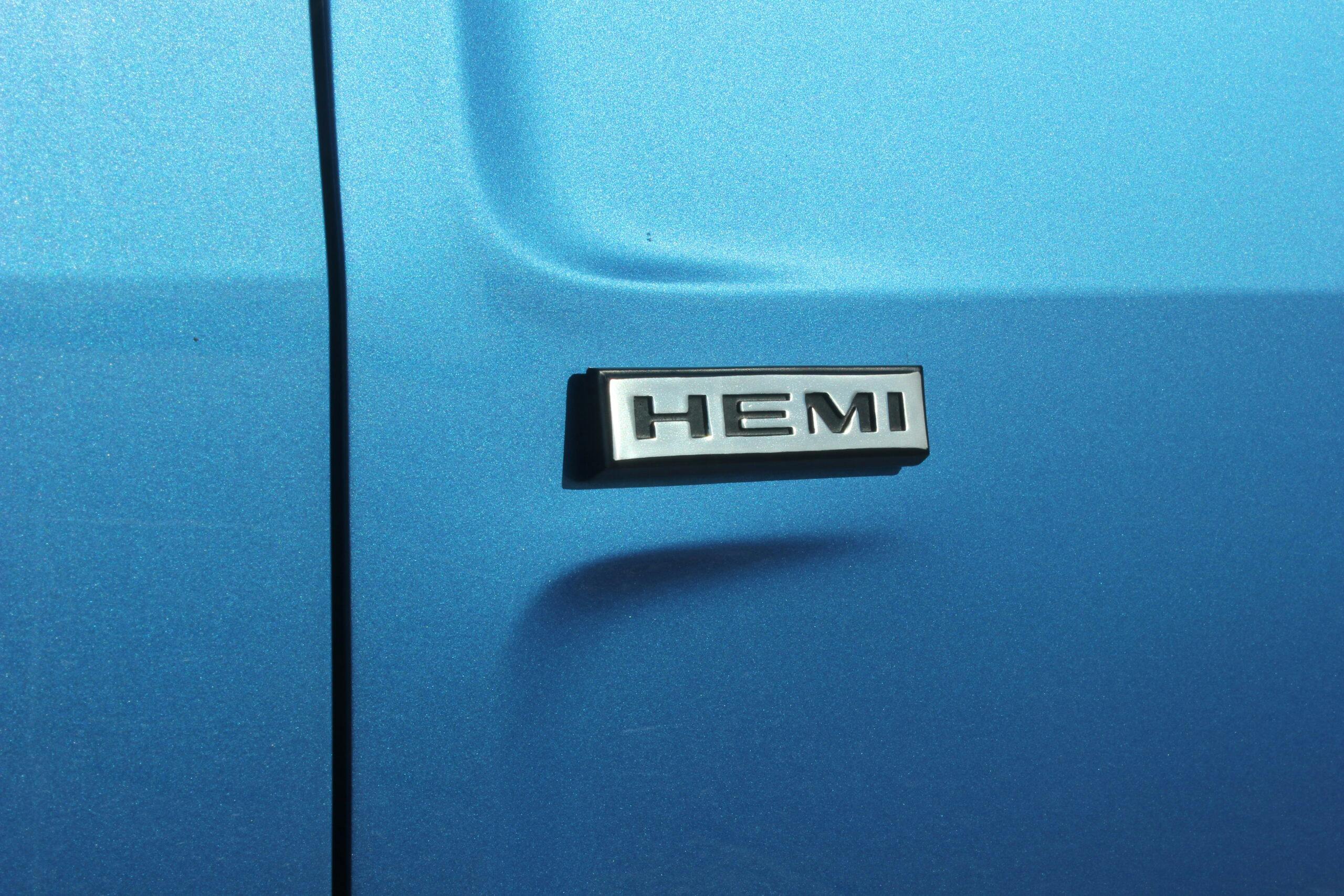
Though he never expected to buy it when he did, Les loves his 1968 Dodge Charger R/T. This being his first and only Mopar, Les says he’s always learning. He says the car is pretty well sorted now and, after getting a few rides during our photo shoot, I can attest that the 426 Hemi has torque for days. As for future upgrades, Les plans to bring the Charger back to Moonlight Garage to have a Dana 60 rear differential installed, just like factory Hemi/four-speed cars had. The rear brakes are also being beefed up from 8- to 10-inch drums/shoes. Whether on display at his business HQ, or strutting its stuff at a Sunday morning cars and coffee or other local car show, the blue, bee-striped muscle car is always a star, and Les’ bucket list is one car shorter.

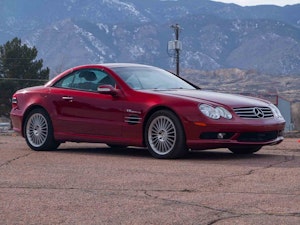
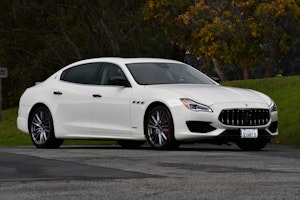
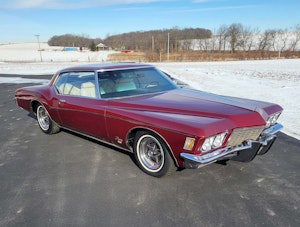
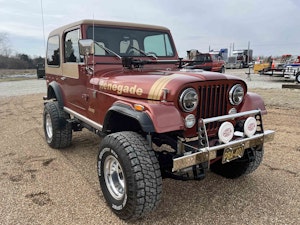
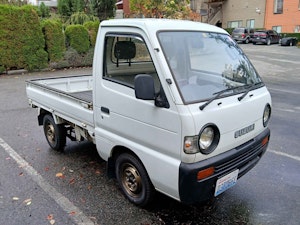
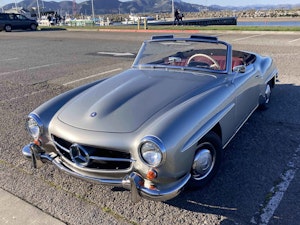
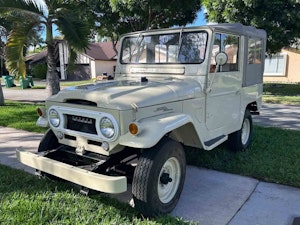

























I once left the house to find a car, and returned with a bucket list motorcycle. Who puts a bike shop in the middle of a row of used car lots, anyway?
Can you blame someone from coming home with this blue beauty? If I had the money I would also.
Gorgeous! Best. Grille. Ever.
What an improvement to replace the 440 and slushbox with that 426 hemi and a manual! I agree with the restorer’s and owner’s decisions on this. Sometimes build-plate-authentic is not the best option — esp. when there were better options at the time, and can be retrofitted. I have no interest whatsoever in automatic muscle cars; manuals really get my attention, however.
1968 Mopar 440 Tourqeflite combo is not one I would pads up. Hemi four speed does improve it but for street driving not by much.
My torque flite was pushing forward while the fools with 4 speeds were dancing all over the roadway BEHIND me!
Beautiful car. Colour combos are great and that 4 speed is the best.
I had the ’68 440Mag & HD torque flite. Mine was midnight blue & no stupid bumble bee striping. A GREAT car!
Great relatable article. Memories of searching for your dream car or accidentally having it find you are a car junkies adrenaline creation. The only part of the story that would have been better would of having it been about an ordinary guy instead of a rich guy with an excessive enough amount of cash to not just get the one car of his dreams, but another desired one for his massive collection.
If anyone reading this is familiar with this particular car I’d be curious as to the original color.
I may know something of the pre-restoration history on this car.
The plate on the inner fender will have the color code plus all the other build codes. I’m curious about the E-code color comment in the article.
Here’s my story about doing one thing and ending up with a car. A friend told me he was giving some passing thought to getting an older sports car. I decided to tease him with a picture of a high end car. I found a fully restored 1956 Jaguar XK140 up for auction near us. I sent him a picture and laughingly said how about this one? I kept looking at the car and it grew on me. After the auction I checked on the sale price and found it had not met the owner reserve and was still for sale. I decided to go look at it (error). I now own that car.
Gorgeous car ! The color looks like QQ1 blue on my monitor – EE1 is darker. Julius uses other shops for body & paint, and I can tell you from personal experience that some were not up to the task: shiny paint, but sub-par bodywork (speaking as someone with 40 years in the restoration & high-end collision repair industries, who had to re-do a Julius restoration; there are many of us, sad to say). So, keep a watchful eye on seams, known Mopar rust areas, and such. Lastly, no such thing as an 8″ Mopar brake – all-drum R/Ts were 11″, disc/drum had 10″ drums on the rear. Even the lowliest Slant-6 Valiant/Dart had at least 9″ drums.